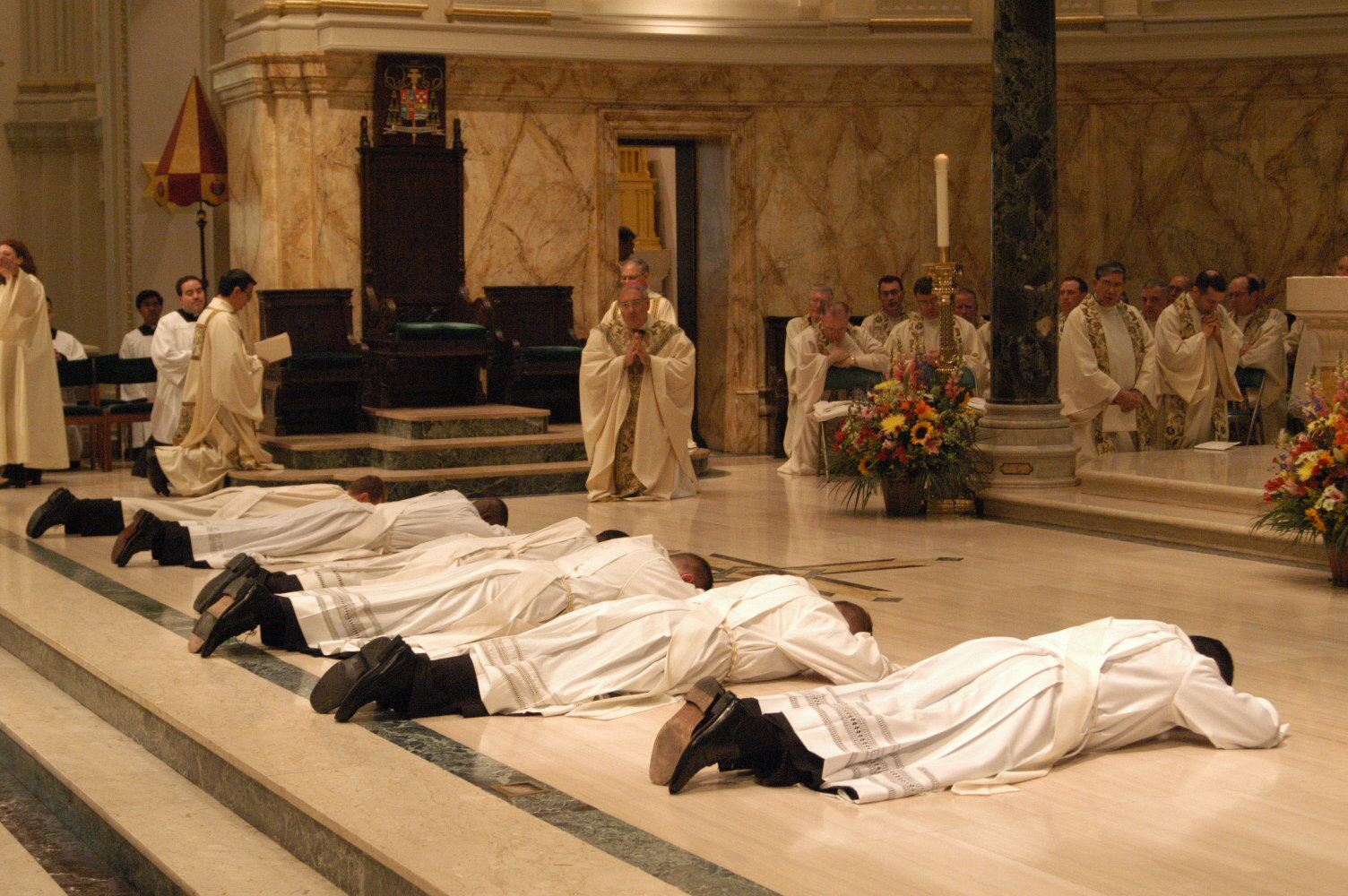
Consecrated Religious Life, Holy Orders, and Discerning Your State in Life Vocation
Are you called to give your whole life to Christ as a consecrated religious? Begin to discover God’s vision for your life by checking out the Seattle Archdiocese webpage on vocations (use the button). For more information on the meaning of consecrated religious life and the Sacrament of Holy Orders, please scroll.
The Call
All people are called to holiness, but some are called to the perfection of charity. Jesus is the one who revealed the sublime dignity of celibacy for the sake of the Kingdom of Heaven, proclaiming, “Some are incapable of marriage because they were born so; some, because they were made so by others; some, because they have renounced marriage for the sake of the kingdom of heaven. Whoever can accept this ought to accept it.”
-Matthew 19:12
The gift of living a religious vocation is a sign of the Heavenly realities that are to come, the marriage of the Lamb of God to the Mystical Bride, the Church. The mystery is being lived out now by the consecrated religious person. The woman who gives her life to become a religious sister becomes the bride of Christ, a prophetic sign of eschatological hope. She becomes a spiritual mother thanks to the full, total, free gift of her femininity, and nourishes many spiritual children through her complete service to God. The man who gives his life for the sake of religious life lives, by virtue of his masculinity, pours himself out as a gift of spiritual fatherhood, giving life to others. He who is consecrated through the Sacrament of Holy Orders becomes an ordained priest after the royal priesthood of Christ, and is conformed to Christ in his soul. He acts in persona Christi to confect the Eucharist, extend the Apostolic power of forgiveness of sins, and gives spiritual life to the children of the Church through prayer, sacrifices and penance. The prostration of the individual making holy vows of poverty, chastity and obedience in a religious vocation symbolizes death to the devil, the flesh, and the world, and upon rising represents the power and new life of the Resurrection of Christ lived out in the body.
“For if any man should come after me, let him deny himself, take up his Cross daily, and follow after me.”
-Luke 9:23
How do I Begin Discerning My Religious Vocation?
The first step to discerning a call to religious life involves living a sacramental life as a Catholic, in a state of grace. Making frequent Confessions and reception of the Holy Eucharist are necessary, as is daily prayer, and following the Commandments and Precepts of the Catholic Church. A regular visitation before Jesus in the Blessed Sacrament is also necessary as well. God is calling you deeper into relationship with Himself, and so you must make Him a priority. It is His insistent voice that will lead your soul to seek Him more deeply and exclusively on your journey of discernment.
It is also highly recommended if not indispensable to seek out spiritual direction. It is additionally necessary to spend time with various communities if seeking out a religious order, and spending time with priests, monks or sisters to build relationships, ask questions, and spend time in the home of religious communities. For more practical advice on taking concrete steps to discern a religious vocation, Click here.
Be sure to learn about, pray about, and appreciate BOTH vocations that God can call a person to, in self-emptying love. Every Catholic should first discern religious life before ultimately discovering God’s vocation for his or her life. Those who go on to discern a consecrated religious life must see the value in and even desire the sanctifying gift that is the Sacrament of Matrimony, just as those who go on to discern matrimony must acknowledge with awe the gift that is religious life, in order to fully embrace the call God has in store. Calling upon the Holy Spirit in prayer will facilitate an openness in this search that is, although a mystery, not a held over us by God, but lovingly revealed to the earnestly seeking soul in time.
For Men: Who Can Receive Holy Orders?
Holy Orders is the Sacrament that men receive through the laying of hands by the bishop. Religious life for women is not a Sacrament simply because women already live out the sign at the heart of the Church, through their femininity, to be the Bride of Christ. Men who are ordained as deacons, priests and bishops are “stamped” with the likeness of Christ in the Sacrament of Holy Orders. They can become signs of Christ and be wedded to the Church because of the gift of their masculinity. Remember that a Sacrament is an outward sign that points to a Heavenly mystery. Although a man who becomes a priest remains the same in appearance and imperfect in his sinful humanity, after the gift of the laying of hands, his soul has been molded into the shape of Christ, and can act with His authority. His priestly lineage and therefore power can be traced back to the 12 Apostles.
The Church confers the sacrament of Holy Orders only on baptized men (viri), whose suitability for the exercise of the ministry has been duly recognized. Church authority alone has the responsibility and right to call someone to receive the sacrament of Holy Orders. (CCC 1598)
In the Latin Church the sacrament of Holy Orders for the presbyterate is normally conferred only on candidates who are ready to embrace celibacy freely and who publicly manifest their intention of staying celibate for the love of God's kingdom and the service of men. (CCC 1599)
What is the difference between monks, friars, priests, and brothers? Click here to learn more.
What is a deacon and who can become one? Click here to learn more.
For Women: What Does it Mean to be a Consecrated Religious?
Religious life for women is not a Sacrament simply because women already live out the sign at the heart of the Church, through their femininity, to be the Bride of Christ. It is however a total, free, spiritually fruitful gift of self in celibacy for the sake of the Kingdom of Heaven. At the heart of the vocation is love, witnessing that Christ alone can satisfy the longing of the human heart. The habit worn by consecrated religious is both humble and like a bride’s veil and wedding dress. Some religious orders live out an active apostolate serving in the world, particularly in teaching and in caring for the infirmed, and some religious orders live out a cloistered, contemplative, sacrificial life of intercession for the sanctification of the Church.
What is the difference between nuns and religious sisters? Click here to learn more.
Want to learn more about the mystery of love in the life of the consecrated religious sister? Click here to learn more.
